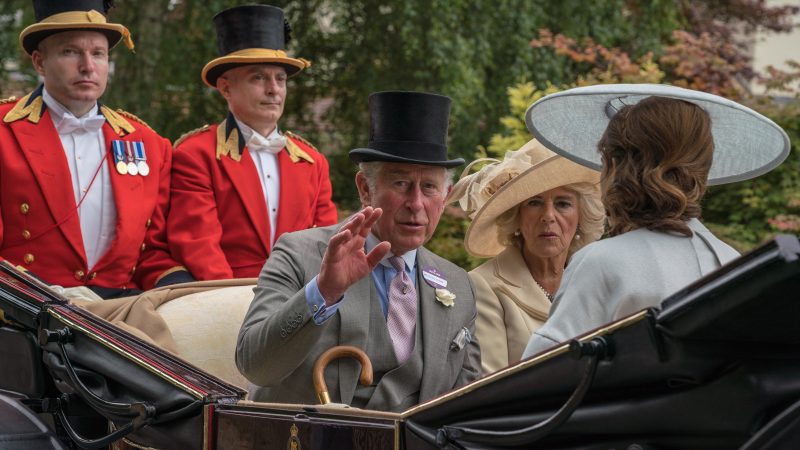
King Charles delivered the first King’s Speech of the new Labour government today, a jam-packed address that featured 40 bills across a broad range of policy areas.
Which policies would make it into the King’s Speech has been a source of widespread speculation in recent days. But which policy areas do we now know did not make the cut? Here is our rundown of some of the key topics that did not feature.
Axing the two-child cap on benefits
One of the policies we were fairly sure would not be included in the speech ahead of time was scrapping the two-child cap on benefits. Labour has faced considerable pressure over its failure to commit to axing the cap, which prevents parents from claiming Universal Credit or child tax credit for a third child, with some exemptions.
READ MORE: Child poverty taskforce launched amid pressure to reverse two-child benefit cap
Prime Minister Keir Starmer said following the election that his party “intend[s] to ensure that we stick to our rules, and that is why I can’t make the commitment on the two-child benefit”.
But Labour backbencher Kim Johnson has announced that she plans to move an amendment to the speech on the issue, “to help demonstrate the strength of feeling on this issue and encourage the new government to progress quickly with this crucial policy”. The Scottish National Party has also said it plans to table an amendment to scrap the cap.
Read more of our coverage of the King’s Speech here:
- King’s Speech guide: What to expect in Labour’s 35 bills
- Kim Johnson MP: ‘My amendment to lift the two-child benefit cap is vital’
Introducing votes for 16- and 17-year-olds
There had been speculation that Labour’s manifesto pledge of granting votes to 16- and 17-year-olds in all elections would be in today’s speech, but the policy did not make the cut in the end – though the King did say that his ministers will “encourage wide participation in the democratic process”.
It seems widening the franchise to 16- and 17-year-olds has just been delayed to later in the parliament, however, with a Downing Street spokesman confirming following the speech that Labour remains committed to implementing votes at 16 this parliament, allowing 16- and 17-year-olds to vote at the next general election.
Wider House of Lords reform
Today’s King’s speech included a House of Lords (hereditary peers) bill, which will deliver on Labour’s manifesto commitment to remove the right of hereditary peers to sit and vote in the House of Lords.
But the manifesto included a whole host of planned reforms to the House of Lords, as well as stating Labour’s overall ambition of “replacing the House of Lords with an alternative second chamber that is more representative of the regions and nations”.
READ MORE: Sign up to our must-read daily briefing email on all things Labour
Smaller-scale reforms left out of the party’s first King’s Speech in power include a mandatory retirement age of 80 for peers, a new participation requirement and “strengthening the circumstances in which disgraced members can be removed”. The government did say the bill it put forward was the “first step in wider reform to the second chamber”, however.
Tax and spend policy
The purpose of the King’s Speech is to set out the programme of legislation that the government intends to pursue in the upcoming parliamentary session, while the government’s plans for the economy, including changes to taxation and spending, are usually set out in the Budget.
The new Chancellor Rachel Reeves said during the election campaign there would not be a Budget until September if Labour came into power. Sky News predicts that the Budget is not likely to happen before mid-September given Reeves’ pledge that she will not set out her plans for the economy without forecasts from the Office for Budget Responsibility.
Artificial intelligence
There had also been speculation that the speech might feature a bill on artificial intelligence (AI), but it did not feature in the legislation announced.
The King did say in his speech that the government will “seek to establish the appropriate legislation to place requirements on those working to develop the most powerful artificial intelligence models”, however.
READ MORE: Government launches Great British Energy to accelerate renewable energy investment
Starmer also said in his introduction to the King’s Speech document that his party will “harness the power of artificial intelligence as we look to strengthen safety frameworks”.
SHARE: If you have anything to share that we should be looking into or publishing about this story – or any other topic involving Labour or the election – contact us (strictly anonymously if you wish) at [email protected].
SUBSCRIBE: Sign up to LabourList’s morning email here for the best briefing on everything Labour, every weekday morning.
DONATE: If you value our work, please donate to become one of our supporters here and help sustain and expand our coverage.
PARTNER: If you or your organisation might be interested in partnering with us on sponsored events or content, email [email protected].




More from LabourList
‘The High Court judgment brings more uncertainty for the trans community’
‘There are good and bad businesses. Labour needs to be able to explain the difference’
‘This ruling should now remove any remaining barrier to approval of EHRC code’